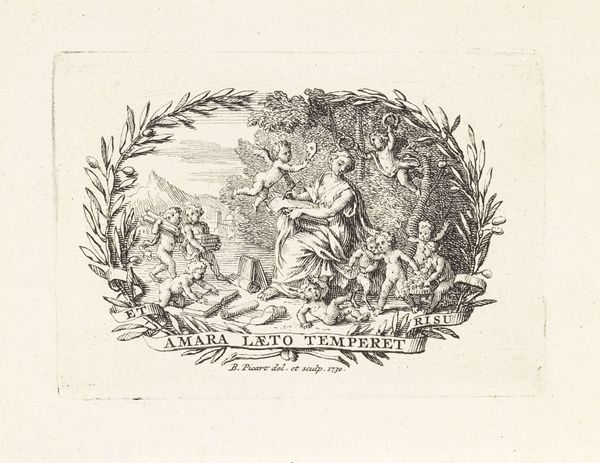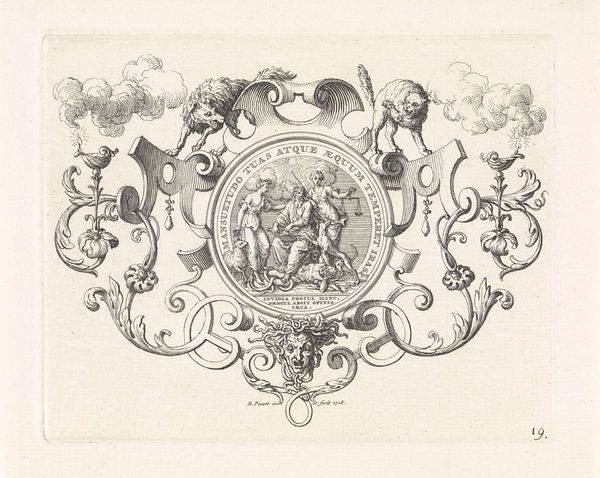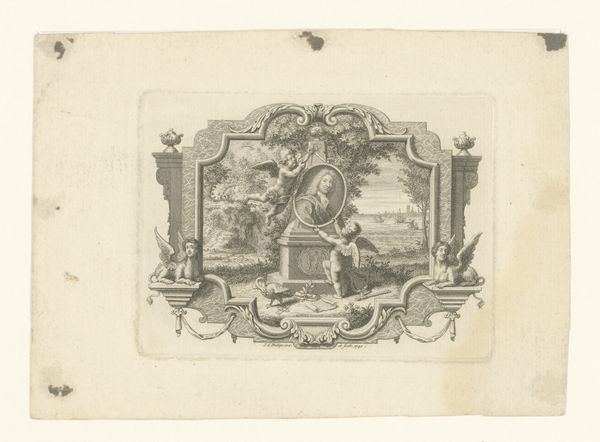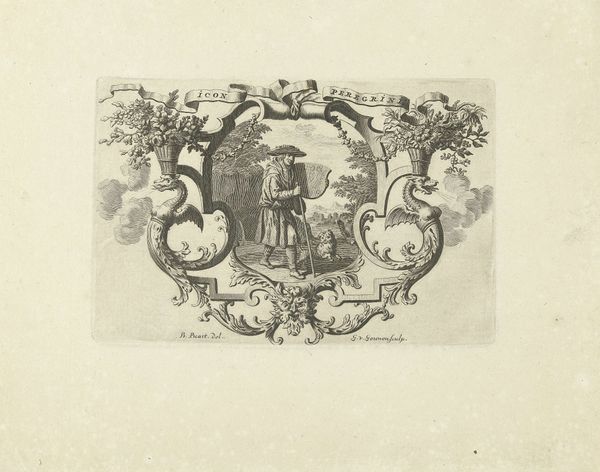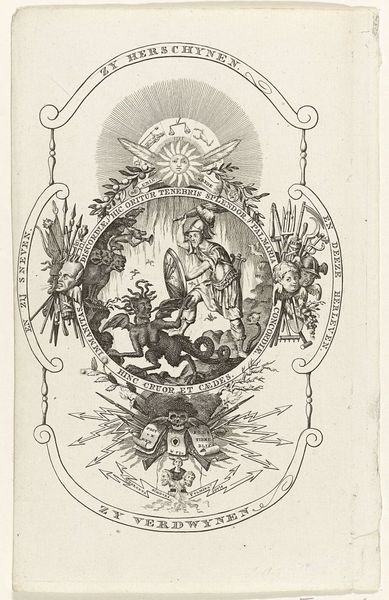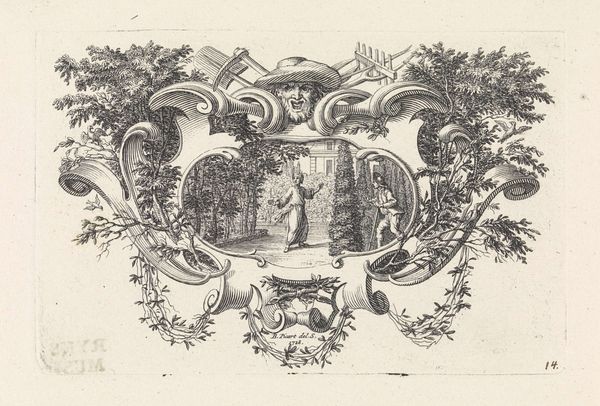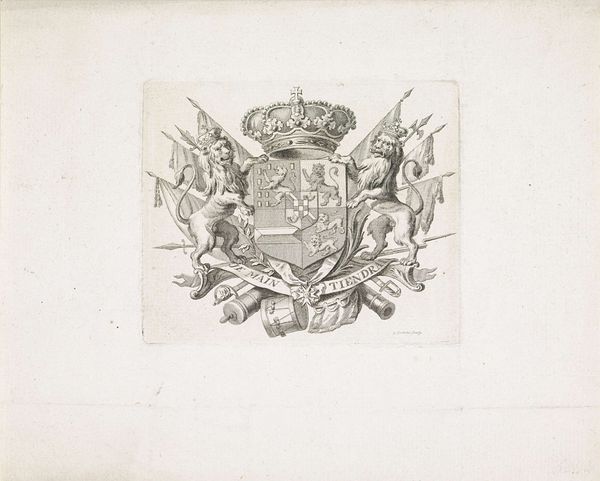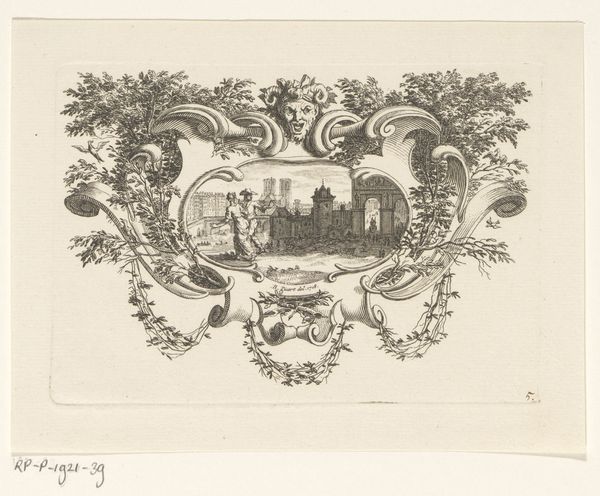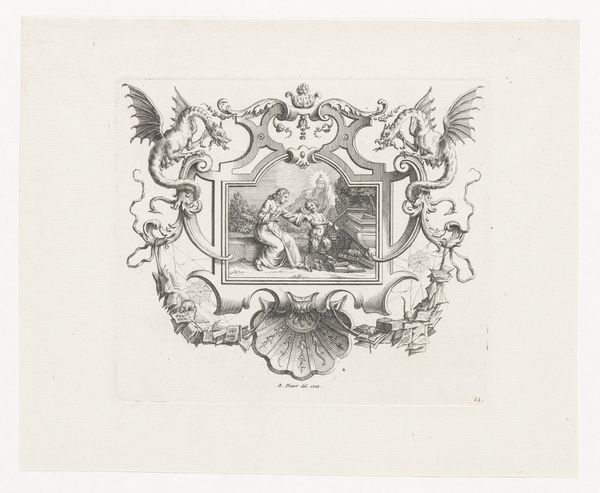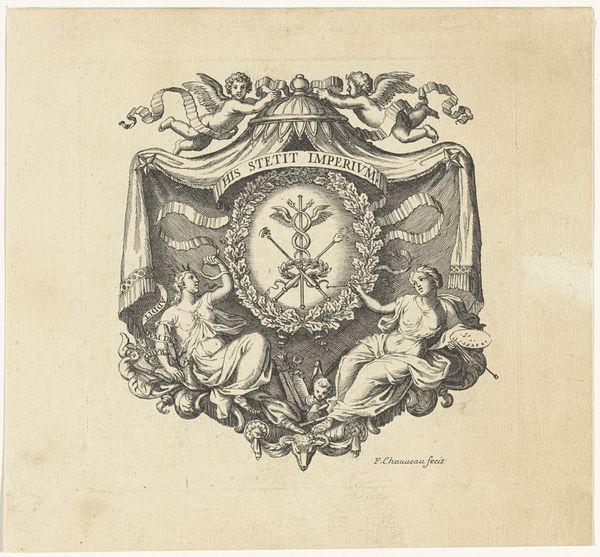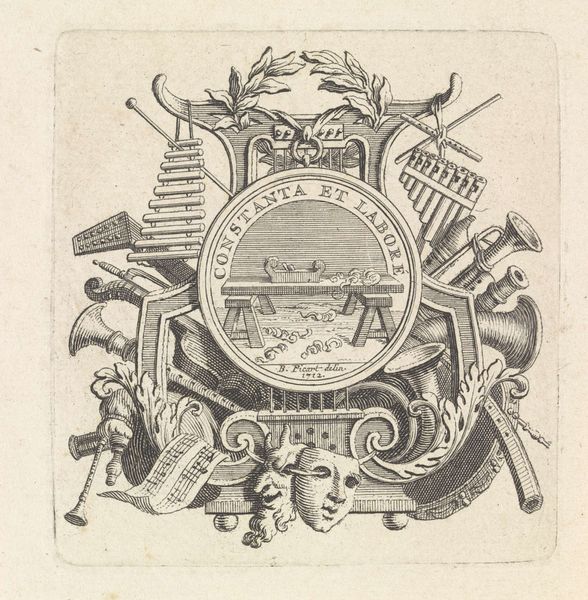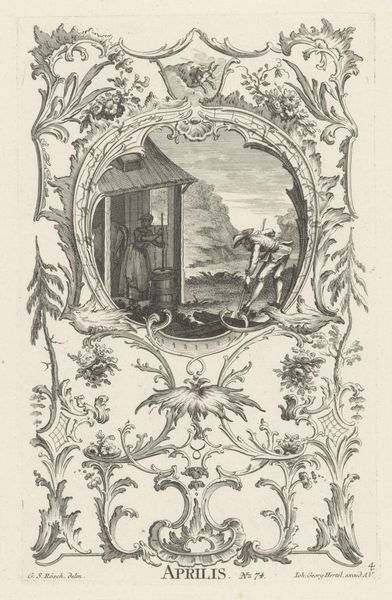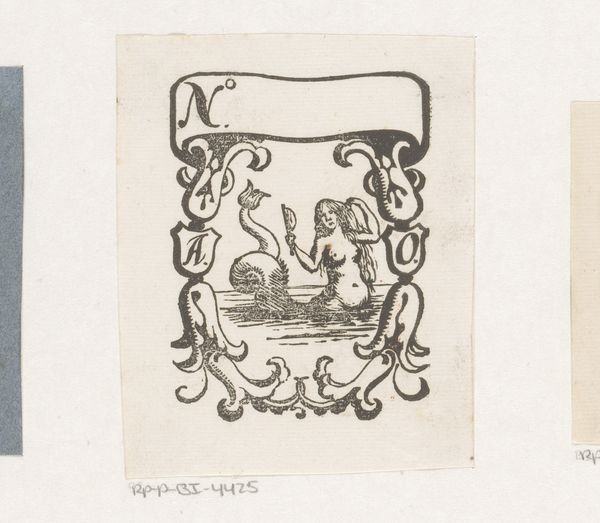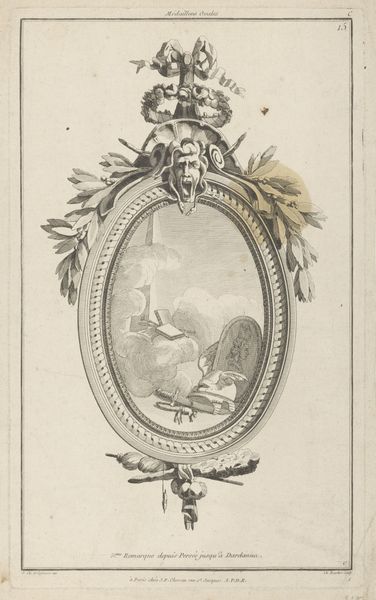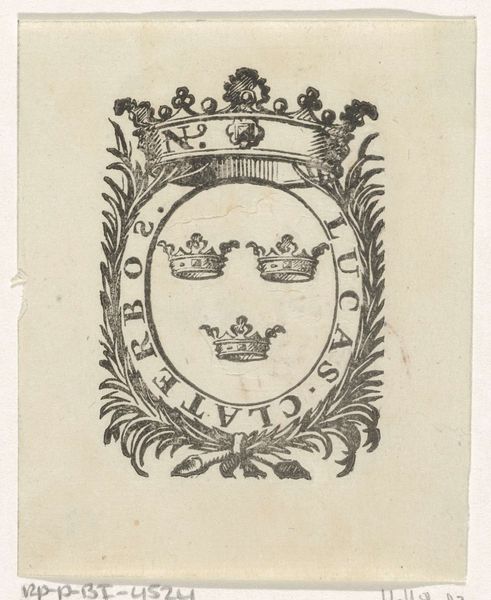
print, engraving
#
allegory
#
baroque
# print
#
figuration
#
history-painting
#
engraving
Dimensions: height 58 mm, width 81 mm
Copyright: Rijks Museum: Open Domain
Editor: Here we have "Mercurius strooit boeken over de aarde," an engraving by Bernard Picart made sometime between 1683 and 1733. It's quite detailed, and Mercurius himself looks rather triumphant scattering books. What strikes me is the way knowledge is depicted as something being spread, almost like seeds. What do you see in this piece, and how does it connect to its historical context? Curator: That's a great initial observation! Consider the broader social implications: Who has access to these books Mercurius is scattering? The image is powerful, yes, but we must question whose stories are being told and whose voices are being amplified. This was the height of the Enlightenment; how did the proliferation of printed material influence social hierarchies? Editor: So you're suggesting that even though the image celebrates the spread of knowledge, we should think critically about its uneven distribution and potential biases? Curator: Exactly! Think about the power structures at play. What languages are these books in? Who is literate? Whose perspectives are privileged in these texts? Understanding the power dynamics inherent in knowledge production is essential. The visual language is aspirational, suggesting a world where wisdom and understanding are freely disseminated. Yet, was that reality? What’s inscribed in the text on the ribbons that enclose the composition? Editor: It says: "Terrarum ubique munera spargit," which I think translates to something like "He scatters gifts everywhere on earth". Does that maybe relate to Mercuius’ reputation as a bit of a trickster? Curator: Absolutely, the inscription underscores a sense of global beneficence and points toward his swiftness, commerce, eloquence. By understanding Mercurius' complex role as messenger and god of trade, the artwork asks whether "gifts" can have multiple readings – progress, colonization, maybe even a veiled sort of academic power or dominance? Editor: That definitely gives me a lot to think about, shifting from a simple celebration of knowledge to a more complex view of its role in society. Thanks! Curator: My pleasure! Remember to always look beyond the surface and ask who benefits, who is excluded, and what hidden narratives might be lurking in the image.
Comments
No comments
Be the first to comment and join the conversation on the ultimate creative platform.
